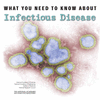Synthetic biology allows and promotes the production or alteration of biological organisms, often for beneficial purposes like reducing diseases and improving agricultural output. While well-intentioned, this innovative field also presents potential risks that could leave many populations vulnerable and threaten livelihoods. Our reports examine the opportunities and concerns surrounding synthetic biology, and offer recommendations to guide this discussion and address these challenges.
Biodefense in the Age of Synthetic Biology
Scientific advances over the past several decades have accelerated the ability to engineer existing organisms and to potentially create novel ones not found in nature. Synthetic biology, which collectively refers to concepts, approaches, and …
Industrialization of Biology: A Roadmap to Accelerate the Advanced Manufacturing of Chemicals
The tremendous progress in biology over the last half century – from Watson and Crick’s elucidation of the structure of DNA to today’s astonishing, rapid progress in the field of synthetic biology – has positioned us for significant innovation in …
Life Sciences and Related Fields: Trends Relevant to the Biological Weapons Convention
During the last decade, national and international scientific organizations have become increasingly engaged in considering how to respond to the biosecurity implications of developments in the life sciences and in assessing trends in science and …
Preparing for Future Products of Biotechnology
Between 1973 and 2016, the ways to manipulate DNA to endow new characteristics in an organism (that is, biotechnology) have advanced, enabling the development of products that were not previously possible. What will the likely future products of …
Dual Use Research of Concern in the Life Sciences: Current Issues and Controversies
The potential misuse of advances in life sciences research is raising concerns about national security threats. Dual Use Research of Concern in the Life Sciences: Current Issues and Controversies examines the U.S. strategy for reducing …
Countering Bioterrorism: The Role of Science and Technology
The attacks of September 11 and the release of anthrax spores revealed enormous vulnerabilities in the U.S. public-health infrastructure and suggested similar vulnerabilities in the agricultural infrastructure as well. The traditional public …



































































